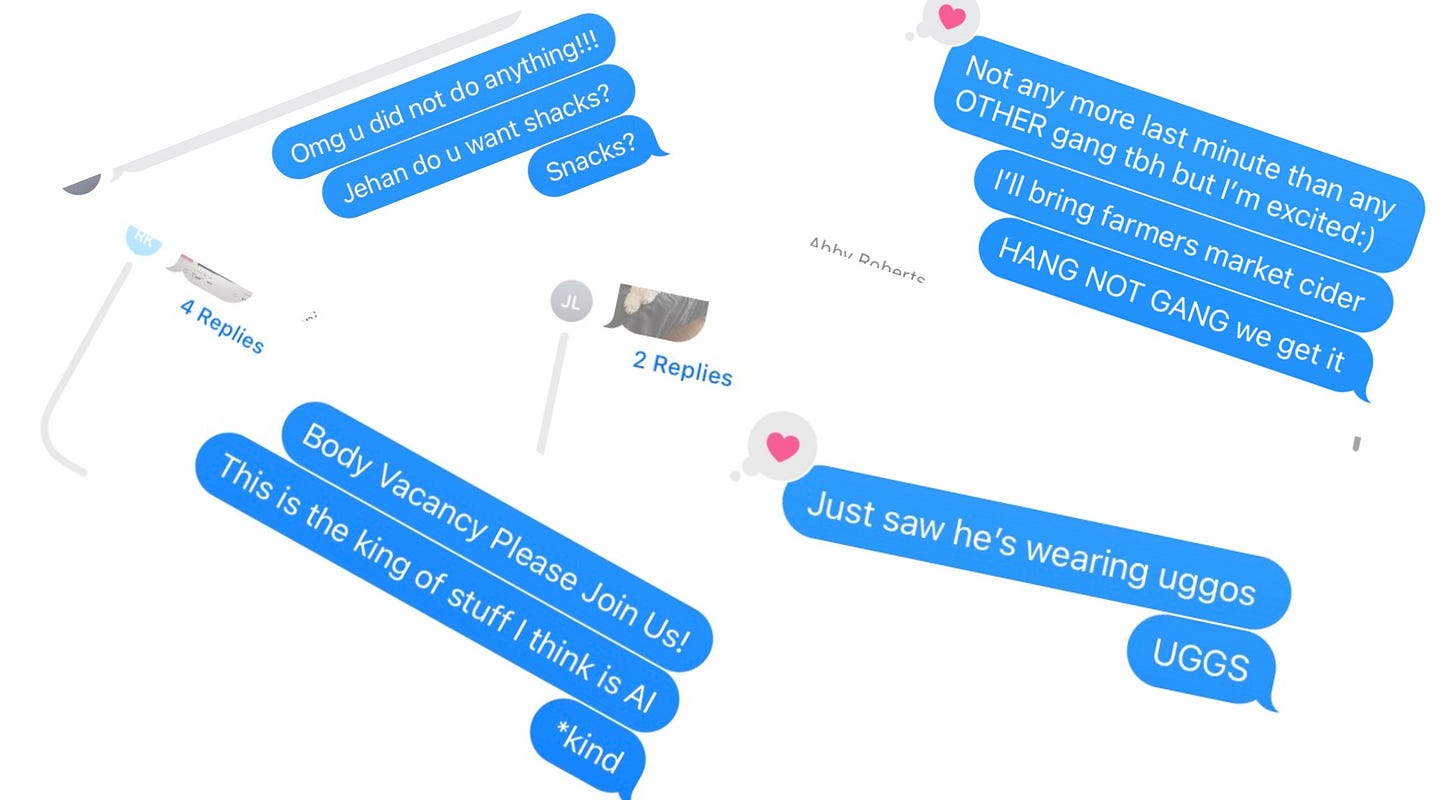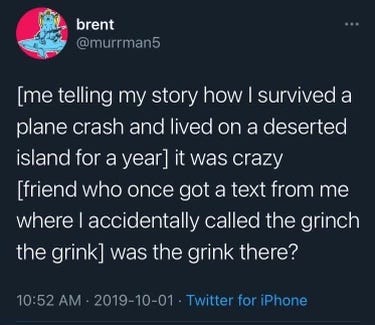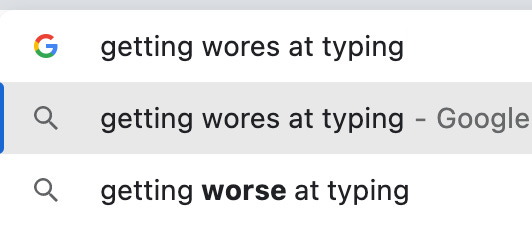When did we get so bad at typing?
It’s not just you—it’s all of us.
Embedded is your essential guide to what’s good on the internet, written by Kate Lindsay and edited by Nick Catucci.
One time I tweeted “Salmon Rushdie” from a Very Prestigious Publication’s account, and that’s all I’m willing to say about the matter because it still haunts me. —Kate
In 2021, Katie Notopoulos wrote a piece titled “Why Am I Sp Bad At Typign?” I remember that when I saw the headline, it took me a few seconds to realize it was spelled wrong. That’s how bad I also am at typing—now, at least. Like Katie, I have a childhood memory of clicky-clacking at a computer game intended to improve my typing. But unlike Katie, the game made me an excellent typer. In fact, I’d say my efficient writing and clean copy was something I prided myself on. Until about three years ago.
Now, I’m not sure if anything super specific was happening exactly three years ago—I’ve blacked it out! Weird!—but that’s when I’d say there started to be a marked difference in my approach to communication. I’d read back my texts and find them riddled with errors I had no awareness I’d made—simple grammar mistakes like confusing “your” and “you’re,” as well as straight-up incorrect words that can only be the result of an overzealous autocorrect.
But this thing is, it’s not just me and Katie. Pretty much everyone I communicate with has faced a similar decline in their digital dexterity, both on their phones and at a keyboard. My group chat is an alphabet soup of typos and Grink jokes, my texts with my boyfriend practically some kind of code. The longer I spend my life doing it and the more online the world gets, the worse my typing seems to get.
I have two theories for why this is happening. First, iOS autocorrect has failed to keep up with the rest of our iPhones’ advancements.
“I’ve had to leave autocorrect off cause no matter how many times I’ve attempted to teach it, it still gives me the wrong words half the time, which means I have to go back and correct those errors as well,” on user wrote in a Reddit thread about this issue four months ago.
The problem, it seems, is that we—humans and autocorrect—are unwilling to change. We have the same typing habits, the same collection of words we routinely use that get mistaken, and these platforms aren’t adapting. It’s just “ducking” over and over and over again.
“What's even worse is that chrome will try to send me to my.search.string instead of fucking recognizing that this happens constantly,” another reddit user lamented. “i have never once wanted you to treat that string as a web address, google! so treat it like a search term already!”
But as much as I’d like to, I can’t blame all of this on my phone. For instance, here’s what happened just 20 minutes ago when I was researching this piece on my laptop:
While I can still generally write a post like this one without too many errors, the moment I’m no longer under pressure to perform or be professional, my fingers turn into Jamie Lee Curtis’s in that scene in Everything Everywhere All At Once. I type quickly and incorrectly and trust that the reader will just figure it out—which I think is the second part of why this is happening: We’re all so used to autocorrect mistakes and the consequences of fast typing in our own lives that we’re not just unphased at seeing it in other’s, but also able to decipher their original meaning. Correcting our typos has become a waste of time.
I know that the “ducking” means “fucking,” just like my friend Jehan knows I’m referring to her when my phone flips her name to “Jean.” I know when my friend Rachel asks “hey are u cogmging” that I should just answer “yeah on my way” because, what am I gonna do? Tell her she incorrectly spelled a word we both know she meant? If you can’t beat them, join them. The Grinch is the Grink now, and there’s nothing we can do about it.





